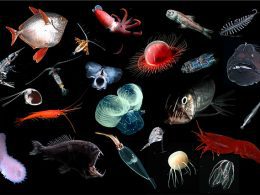Introduction:
Consciousness, often described as our subjective experience of the world and self-awareness, remains one of the most intriguing enigmas of human existence. Scientists and philosophers have long sought to understand its origins and unravel the complex mechanisms underlying conscious awareness. In this article, we delve into the fascinating world of consciousness, exploring its possible origins and the intricate workings of the brain that give rise to this remarkable phenomenon.
1. Defining Consciousness:
Before delving into its origins and mechanisms, it is important to define consciousness. Consciousness encompasses various aspects, including perception, cognition, self-awareness, and the ability to experience and reflect upon our thoughts and emotions. It is a multifaceted construct that remains challenging to fully comprehend.
2. Theories of Consciousness:
Several theories attempt to explain the nature of consciousness. One prevalent view is the “consciousness as a product of the brain” perspective. According to this view, consciousness arises from the complex interactions of neurons and neural networks in the brain. Other theories propose consciousness as an emergent property of information processing or as a fundamental aspect of the universe itself.
3. Neural Correlates of Consciousness:
Studying the neural correlates of consciousness is a crucial approach to understanding its mechanisms. Scientists have identified brain regions and networks associated with conscious experiences through various techniques, such as functional magnetic resonance imaging (fMRI) and electroencephalography (EEG). These studies suggest that consciousness emerges from the coordinated activity of widespread brain networks, including the prefrontal cortex, thalamus, and posterior cortical regions.
4. Levels of Consciousness:
Consciousness is not a singular phenomenon but exists in varying degrees and states. States of consciousness range from wakefulness to sleep, dreams, meditation, altered states, and even disorders of consciousness like coma or vegetative states. Exploring these different levels and states provides insights into the underlying mechanisms and potential interactions between brain activity and conscious experiences.
5. Evolutionary Origins of Consciousness:
Understanding the evolutionary origins of consciousness remains a challenge. While humans possess complex conscious experiences, it is likely that simpler forms of consciousness exist in other organisms. Studying animal behavior, cognitive abilities, and brain structures provides clues to the evolutionary roots of consciousness and its adaptive functions.
6. Consciousness and the Hard Problem:
The enigma of consciousness is encapsulated by the “hard problem,” as coined by philosopher David Chalmers. The hard problem relates to the subjective nature of conscious experiences and why certain brain processes give rise to subjective awareness. It highlights the philosophical conundrum of bridging the gap between the physical processes of the brain and the rich, qualitative aspects of conscious experiences.
Conclusion:
Consciousness remains a captivating and elusive phenomenon that continues to intrigue scientists, philosophers, and individuals alike. Exploring its origins and the mechanisms within the brain offers valuable insights into the nature of human consciousness. While many questions still remain unanswered, ongoing research and interdisciplinary approaches hold the promise of unraveling the enigma of consciousness and shedding light on this fundamental aspect of our existence.












